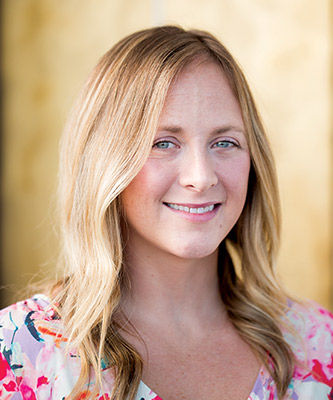Opting Out
By Sara Vanderbeck '09G, Lead Teacher, Centennial School of Lehigh University
Dylan enters my high school classroom - hood up, headphones in - looking as awake as any other 17-year-old at 7:45 a.m. I know that it takes him a minute or two to get ready to complete his morning routine of removing his hood, putting away his phone, saying good morning and asking politely to go get breakfast with his trademark smile. But this morning is different. Today he will participate in Pennsylvania’s statewide standardized test, the Literature Keystone Exam.
Dylan attends Centennial School of Lehigh University, an approved private school for students classified with emotional disturbance and autism. Students are referred from local districts to Centennial School due to chronic challenging behavior that impedes their learning or that of others. Centennial School uses a rich, engaging and rigorous curriculum to prevent problem behaviors, while also providing the context to explicitly model, teach and positively reinforce school appropriate behaviors. Dylan is a student who has made immense progress since his first day at Centennial.
“Mrs. V., why do I need to take the Keystones?” he says dispiritedly as he removed his hood. I could answer his question through two distinct lenses: teacher or graduate student. But before I could muster a response, tears welled in his eyes as he said, “I already know I’m way below grade level. This is just going to make me feel stupid.” My educator heart breaks, but my graduate student brain wants to tell him why it could be beneficial.
I wanted to commiserate with him. I know that the Keystone Exam is not going to show his incredible academic gains this year. It is not going to illustrate that in the last year, he increased his reading fluency skills from the second to fourth grade level and mastered his reading comprehension IEP goal, all while working diligently to improve his coping skills. My teacher lens wants to tell him that this one standardized test will only measure a small part of his meaningful, individualized education.
However, through my graduate student lens, I could explain to him that standardized tests can provide fair, valid and reliable assessments that produce meaningful results when used for their intended purpose. I could reference my Centennial literature class, where six out of seven of my students scored Proficient on the Literature Keystone Exam after most scoring Basic in 8th grade. In that case, the Keystone was an accurate measure of their academic growth. I could expound on how historically low expectations and poor curriculum for students with disabilities can be counteracted by the use of statewide standardized assessments to identify schools that need help improving their special education programs. We could talk about how his inclusion in the statewide assessment could be viewed as a good thing for students with disabilities because lawmakers realize that all students should have high expectations.
Special educators and school psychologists use a wide array of standardized assessments when conducting evaluations and reevaluations required by IDEA. Dylan didn’t realize this, but he has participated in over a dozen standardized tests since being classified as a student with a disability. The difference between the Keystone Exam and these other standardized assessments isn’t necessarily the procedure, but the way the test is framed for him and the way his team uses the results. In these instances, the results are a small part of the larger sum of information used to gather a complete picture of the student’s strengths and needs. Teachers routinely use a variety of criterion-referenced assessments, progress monitoring tools, curriculum-based assessments and even standardized tests to identify academic levels to focus instruction on student’s needs. Dylan didn’t understand that the Keystone is only one, small piece of his academic picture. He felt disheartened when he recognized that his picture is very different than that of his same-aged, nondisabled peers who also take the Keystones.
Dylan recognizes the same things as his graduate student teacher: that the Keystone Exam is not going to meaningfully inform his instruction.
I can only imagine the frustration and discouragement as Dylan attempts to read the difficult text on the Keystone Exam; recognizing that despite his hard-won progress this year, he is not reading on the same level as his same-aged nondisabled peers.
In the moment, as Dylan’s eyes filled with tears, I chose to use my teacher lens. I reminded him of how much progress he made this year, encouraged him to do his best and take breaks as needed, which his IEP outlines. But as the words left my mouth, I couldn’t help but think that his Keystone Exam scores will most likely mirror the results of the other assessments Dylan participates in at Centennial. The Keystones are arguably a valid measure of his academic achievement, but the unintended consequence of these valid results is Dylan’s demoralization.
Posted on:


